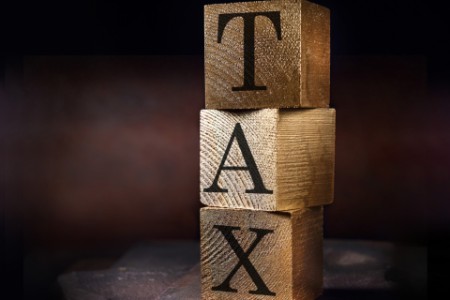It is likely that a taxpayer who claims deductions of INR3.75 lakh and above at an income of INR15.5 lakh and above will still continue with the old tax regime. Particularly for salary income earners, deduction for rent paid against house rent allowance or LTA could make a taxpayer stay with the old tax regime for now. The direction for tax policy is clear and it is likely that eventually we will have a single tax regime without deductions/ exemptions. Meanwhile, this selection of the personal tax regime (old vs new / concessional) can be made every year depending on a comparison of the tax cost estimate under the two systems for salaried and non-business/non-professional taxpayers.
Case in favor of a simplified new tax regime is that it would simplify matters for employers and taxpayers. Employers need not worry about collecting evidence of rent paid, travel expenses, investments made, payment of interest on housing loans, etc. The taxpayer’s return would also be simple and transparent, reducing tax disputes. The young taxpayers may forego deductions and pay some extra taxes under the simplified tax regime since claiming deductions would have meant cash getting blocked in certain investment instruments like insurance policies, government run pension plans etc., that might not be their preferred investment instruments. Sections like 80C push individual taxpayers to invest in identified investments for tax deductions but with the new tax regime the young taxpayer might prefer to pay the extra tax and invest their funds where they deem more appropriate, including equity shares in the stock market, investment in start-ups or even spend it if they so prefer.
For the tax administration, the ease of compliance helps taxpayers to voluntarily file tax returns without hassles, thereby getting more taxpayers into the tax system. Larger volume of taxpayers’ data in the data bank creates opportunities for the tax administration to increase detection of transactions that might have resulted in leakage of taxes and perform analytics for more agile tax policy. Given digitization, the interplay of the data collected from various sources like, banks, credit card companies, travel agents, stock market, etc with the taxpayers’ tax return data would help to ensure better tax collection.
Budget 2023 also continues to work on the agenda of plugging avenues for tax planning for High Net worth Individuals (HNIs) such as introducing cap of INR10 crores for capital Gains exemption on sale of residential house (section 54 of Income Tax Act 1961) and or sales proceeds on sale of long-term asset ( section 54 F of Income Tax Act 1961) which can be justified on grounds of equity and need for revenues to offset lower tax rates. Similarly, streamlined tax benefit for high premium insurance and market linked debentures are outcomes of the data analytics that suggest misuse of beneficial provisions by HNIs.


